Boost Your Insulation Bids – Request a Precision Estimate!
- Accurancy
- Efficiency
- Transparency
- Customization
- Time Saving
- Professionalism
- Cost Control
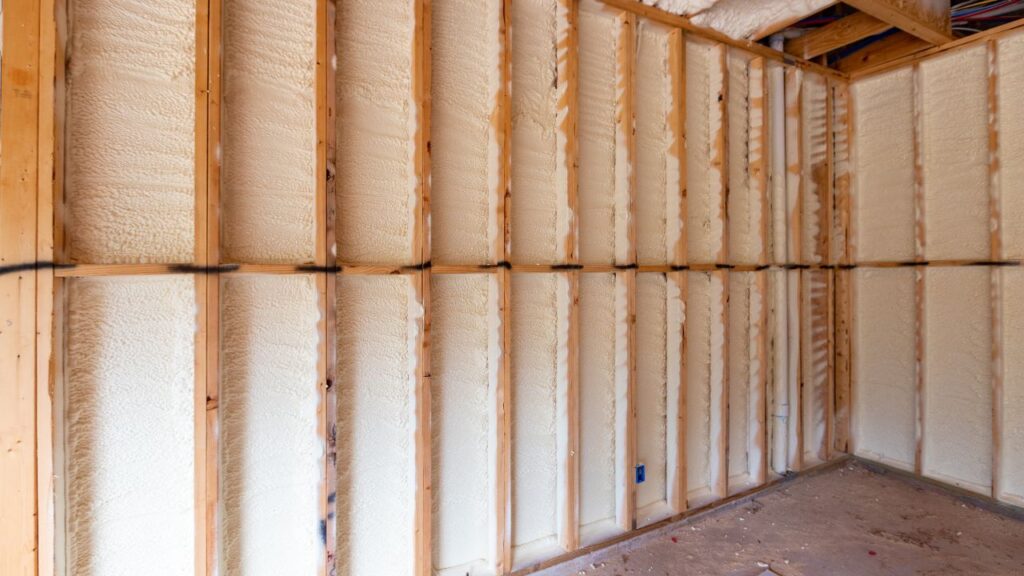
When it comes to insulating a 4000 sq ft house, the cost can vary significantly, but on average, it ranges from $10,000 to $24,000, which breaks down to about $2.50 to $6.00 per square foot. At Estimate Florida Consulting, we provide detailed and customized cost assessments tailored to your specific insulation needs. Our expertise ensures that you receive an accurate estimate that reflects the unique aspects of your home, from the type of insulation material to the specific areas requiring insulation. We aim to give you a comprehensive understanding of the costs involved, helping you make an informed decision that aligns with both your energy efficiency goals and your budget.
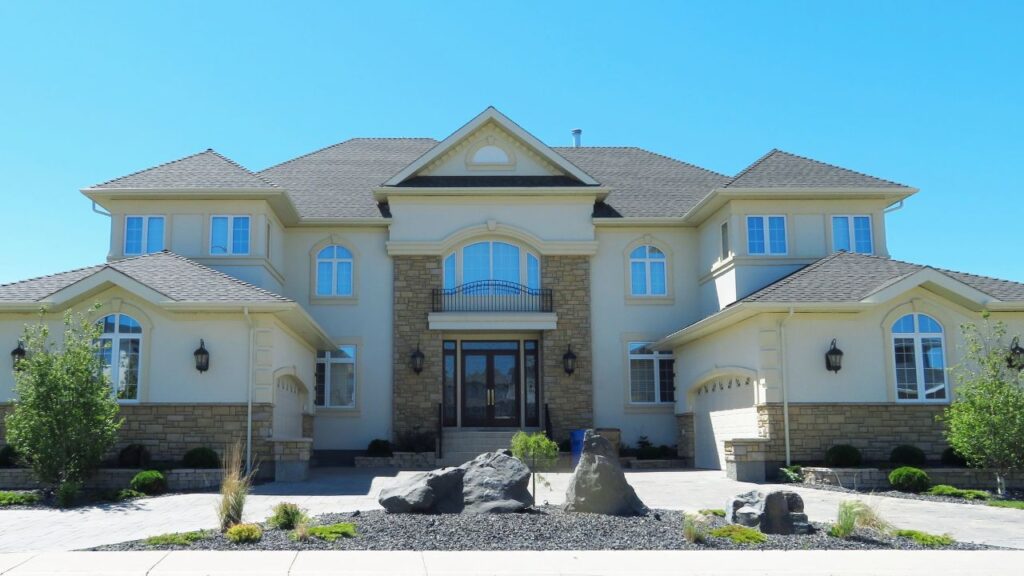
House insulation refers to the process of installing materials in a home to reduce heat transfer, improving its energy efficiency and thermal performance.
Proper insulation is crucial as it helps maintain a comfortable temperature inside the house regardless of external conditions. By minimizing heat loss in winter and heat gain in summer, insulation can significantly lower energy bills and reduce the overall environmental impact. An efficiently insulated home requires less energy for heating and cooling, which not only saves money for homeowners but also reduces greenhouse gas emissions.
Some common types of insulation include fiberglass, spray foam, cellulose, and rigid foam, each offering unique advantages in terms of installation ease, cost-effectiveness, and thermal resistance.
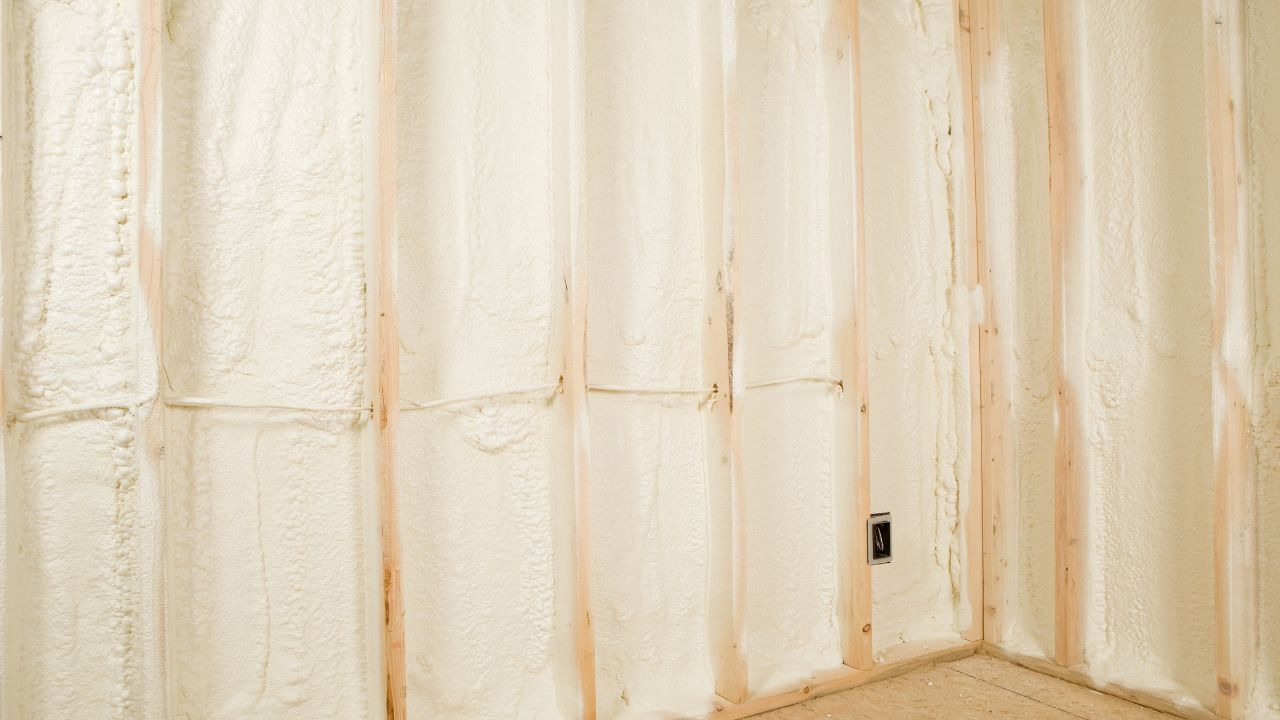
Make Informed Design Decisions Showcase Your Design Ideas
Get RenderingHouse insulation plays a crucial role in maintaining a comfortable indoor environment, reducing energy consumption, and lowering utility bills by enhancing the home’s energy efficiency.
Effective insulation not only helps in keeping the desired temperature inside the house stable throughout the year but also contributes to significant savings potential. By minimizing heat transfer through walls, floors, and ceilings, insulation helps reduce the workload on heating and cooling systems, leading to lower energy usage and costs. This not only benefits homeowners in terms of reduced monthly bills but also adds value to the property.
Proper insulation is essential for environmental sustainability as it reduces greenhouse gas emissions by decreasing the need for excessive energy consumption.
House insulation can be achieved through various methods and materials, each offering unique properties and advantages to enhance the home’s energy efficiency.
Batt or roll insulation, for instance, is a popular choice for its easy installation process and versatility in fitting different spaces.
Loose-fill insulation, on the other hand, provides excellent coverage in irregularly shaped areas such as attics.
Rigid foam insulation offers high thermal resistance and can be used in both exterior and interior applications.
Spray foam insulation expands to fill gaps, making it a great option for sealing air leaks.
Reflective insulation reflects heat away, helping maintain a comfortable indoor temperature.
Each type of insulation plays a crucial role in maintaining thermal efficiency and adding value to a home.
Batt or roll insulation involves using pre-cut panels or rolls of insulation materials, typically made of fiberglass, to insulate walls, attics, and floors in a house.
This type of insulation is known for its flexibility and ease of installation, as the panels or rolls can be easily cut and fitted to the desired size. One of the key advantages of batt or roll insulation is its ability to provide excellent thermal performance, helping to maintain a comfortable indoor temperature and reduce energy costs.
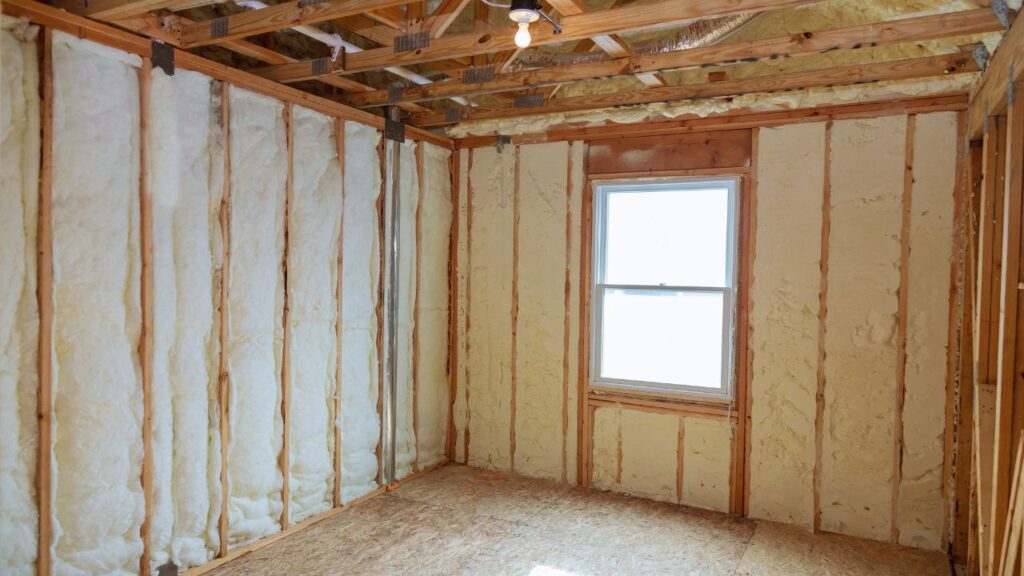
When installing batt or roll insulation, it is important to ensure proper ventilation to prevent moisture buildup, which can affect the insulation’s efficiency. Considering factors like R-value and the specific area being insulated is crucial for achieving optimal insulation effectiveness.
Loose-fill insulation involves loose particles or fibers, such as cellulose or mineral wool, blown into spaces to fill cavities and provide thermal resistance, requiring professional installation for optimal effectiveness.
This type of insulation is valued for its high R-value, which is a measure of its thermal resistance. The installation process typically involves a contractor using specialized equipment to blow or pour the insulation material into attics, walls, or other enclosed spaces. Loose-fill insulation is known for its ability to conform to irregular shapes and fill hard-to-reach areas, providing better coverage than traditional batt insulation. Its key benefits include improved energy efficiency, reduced utility costs, and enhanced thermal performance, making it a popular choice for homeowners looking to enhance their home’s insulation.
Rigid foam insulation consists of solid panels or boards made from materials like polystyrene or polyurethane, offering high insulating properties against various weather conditions and ensuring long-term effectiveness.
It is known for its exceptional weather resistance, making it ideal for use in both hot and cold climates. The installation of rigid foam insulation typically requires careful attention to detail to achieve optimum performance. When properly installed, it effectively reduces energy costs by creating a barrier that prevents heat transfer, leading to significant energy savings over time. Homeowners and builders often choose rigid foam insulation for its durability and ability to maintain its insulating properties for many years, contributing to its reputation as a cost-effective and sustainable insulation option.

Spray foam insulation involves spraying a liquid foam material that expands and solidifies, creating a seamless barrier that conforms to any space, suitable for various climates and regions.
This versatile insulation method is ideal for both hot and cold climates, providing exceptional thermal insulation by sealing even the tiniest cracks and gaps.
Its application process allows for easy customization, ensuring a tight seal that reduces energy consumption and maintains consistent indoor temperatures.
Spray foam insulation is particularly suitable for regions prone to extreme weather conditions, as it effectively blocks out moisture and drafts while offering long-term durability and structural support.
Its ability to expand and conform makes it a popular choice for achieving high energy efficiency in homes and commercial buildings alike.
Reflective insulation utilizes reflective materials to redirect heat flow, providing a barrier against radiant heat transfer and offering potential energy savings over time with a favorable return on investment.
By utilizing its unique reflective properties, reflective insulation can effectively reduce heat transfer by reflecting radiant heat, making it a practical choice for maintaining indoor temperatures and enhancing thermal performance.
The ease of installation also adds to its appeal, as it can be incorporated into various home insulation projects without extensive labor. Its cost-effectiveness over the long term makes it a wise investment for homeowners looking to save on energy costs and improve overall comfort within their homes.
When considering insulation for a 4,000 sq ft house, the cost typically ranges from $10,000 to $24,000, averaging around $2.50 to $6.00 per square foot. This broad range accounts for various factors such as the type of insulation material – options include fiberglass, cellulose, or spray foam – and the specific areas of the house requiring insulation, like walls, attics, or basements. Labor costs also play a significant role and can vary based on the region and the complexity of the installation. The chosen insulation type’s efficiency and the long-term energy savings it offers can also influence the overall expense of the project.

Several factors influence the cost of insulation for a 4,000 sq ft house, such as the chosen insulation type, installation complexity, labor expenses, and the potential savings in energy bills over time.
The materials used in the insulation process play a significant role in determining the overall expenses. High-quality materials may initially seem like a larger investment but can lead to substantial long-term savings through improved energy efficiency. Labor costs also contribute significantly to the total insulation expenses, especially for more intricate installation requirements.
Considering the long-term benefits, investing in proper insulation can prove to be a cost-effective decision, as it not only reduces immediate costs but also leads to considerable savings in heating and cooling expenses over the years.
The cost of insulating a 4,000 square foot house generally ranges between $10,000 and $24,000, averaging around $2.50 to $6.00 per square foot. This price variation is influenced by several key factors. The choice of insulation material plays a significant role; options include fiberglass, cellulose, or more expensive spray foam. The specific areas of the house needing insulation, such as walls, attics, or basements, also affect the total cost. Additionally, labor costs can vary widely depending on the geographical location and the complexity of the installation process. These factors combined determine the overall investment required for insulating a house of this size.
From small to large projects, residential to commercial, we’re here to help you win. Fast results guaranteed.
Insulating a house offers a range of benefits, including lower energy bills, enhanced thermal efficiency, and the potential to increase property value through improved energy performance.
By investing in proper insulation, homeowners can significantly reduce heat loss during colder months, ensuring a cozy interior without over-reliance on heating systems. This reduction in energy consumption not only leads to financial savings but also lessens the household’s carbon footprint, contributing to a more sustainable living environment.
A well-insulated home stays cooler in the summer, maintaining a comfortable indoor temperature without excessive reliance on air conditioning, further enhancing energy efficiency and cost-effectiveness.
Effective house insulation leads to lower energy bills, offering homeowners the opportunity to recoup their investment over time through energy savings and a favorable payback period.
Insulation not only reduces the amount of heat that escapes during the colder months but also helps to keep your home cooler in the summer, making it a year-round energy-saving solution. By investing in quality insulation, homeowners can essentially make their homes more energy-efficient, resulting in substantial savings on utility bills.
The upfront cost of insulation may seem daunting, but the return on investment is significant as it can pay for itself in terms of reduced energy costs within a relatively short period. Beyond immediate savings, the long-term benefits of effective insulation include increased comfort, reduced environmental impact, and enhanced property value.
Proper insulation enhances indoor comfort by maintaining consistent temperatures, reducing drafts, and regulating humidity levels, tailored to suit the specific climate and region.
The effectiveness of house insulation in promoting comfort levels is influenced by various factors such as the thickness of the insulation material used. Thicker insulation provides better thermal resistance, preventing heat transfer in both hot and cold climates. This helps in maintaining a comfortable temperature inside the house, whether it’s scorching hot outside or freezing cold.

Climate suitability plays a crucial role in determining the type of insulation needed. Different regions require different insulation techniques to effectively combat the varying weather conditions and ensure optimal comfort for occupants.
House insulation plays a vital role in reducing the carbon footprint of a property by lowering energy consumption, resulting in decreased greenhouse gas emissions and reduced environmental impact.
This reduction in energy consumption not only benefits the environment but also has a positive impact on your utility bills. By preventing heat transfer, insulation helps maintain a consistent indoor temperature, reducing the need for excessive heating and cooling. This, in turn, decreases the amount of energy required to regulate the temperature inside your house.
Improved energy efficiency due to proper insulation can lead to significant cost savings on your monthly energy bills. Investing in quality insulation is a sustainable choice that not only benefits your wallet but also contributes to the fight against climate change.
Selecting the appropriate insulation for a 4,000 sq ft house involves considering factors such as the climate, R-value requirements, fire safety ratings, and the potential long-term savings offered by different insulation types.
Understanding the R-value of insulation is crucial as it indicates the material’s thermal resistance, which directly impacts the energy efficiency of your home. In colder climates, a higher R-value is recommended to prevent heat loss, while in warmer regions, proper insulation can help maintain a cool indoor environment. By investing in quality insulation, homeowners can enjoy reduced energy bills, improved comfort levels, and eco-friendly benefits that contribute to a sustainable living environment.
The climate of the region where a house is located plays a significant role in determining the most effective insulation type, ensuring optimal performance and energy efficiency tailored to the specific weather conditions.
For instance, in colder regions with harsh winters, choosing insulation materials with a high R-value becomes crucial to retain heat and keep energy costs low. On the other hand, in warmer climates, selecting insulation that effectively blocks out heat and UV rays is essential to maintain a cool interior and reduce the reliance on air conditioning. By aligning insulation choices with the local climate, homeowners can enhance the effectiveness of their insulation, leading to a more comfortable living environment and sustainable energy usage.
The R-value of insulation indicates its thermal resistance properties, with higher R-values offering better insulation performance, and homeowners can calculate the required R-value based on their house’s specific needs.
Understanding the R-value is crucial in making informed decisions when it comes to thermal insulation. By knowing the R-value needed for your home, you can ensure optimal energy efficiency and comfort levels.
The calculation methods for determining the appropriate R-value consider factors such as climate, building materials, and desired thermal performance. Choosing the right R-value for insulation is essential to prevent heat loss in winter and heat gain in summer, ultimately leading to cost savings and a more sustainable living environment.
Assessing the fire safety ratings of insulation materials is crucial to safeguard the property against fire hazards, ensuring compliance with safety standards and potentially increasing the property’s value.
Understanding the fire safety rating of insulation not only provides peace of mind but also plays a significant role in fulfilling regulatory requirements. By choosing insulation materials with proper fire safety credentials, homeowners can mitigate the risk of fire-related incidents, safeguarding their investment.
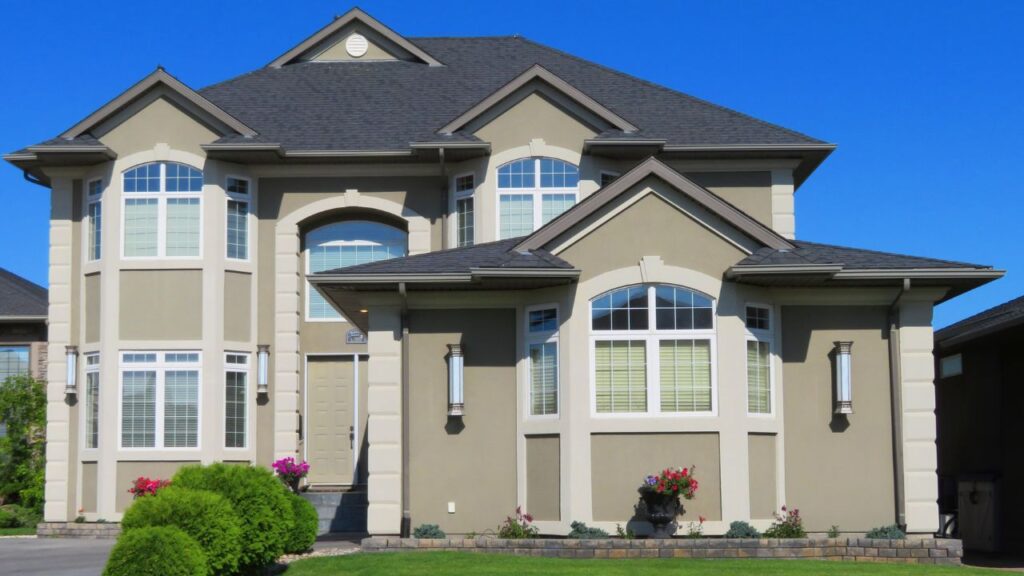
In the event of a fire, appropriately rated insulation can slow down the spread of flames, allowing more time for evacuation and reducing property damage. It’s a wise decision that not only prioritizes safety but also protects the property value in the long run.
Considering the long-term savings potential of insulation choices is essential, as energy-efficient solutions can pay for themselves over time through reduced utility bills and overall cost savings, ensuring a valuable investment.
By taking into account factors such as payback periods and return on investment (ROI), individuals can make informed decisions that will increase the efficiency of their homes. Insulation not only helps in maintaining a comfortable indoor temperature but also contributes to reducing energy waste, resulting in significant cost savings in the long run. The upfront investment in high-quality insulation can lead to lower energy consumption, lower maintenance costs, and a more sustainable living environment, all of which enhance the overall cost-effectiveness of the property.
The process of insulating a 4,000 sq ft house involves several stages, including preparation, installation of the chosen insulation materials, and adding finishing touches to ensure optimal energy efficiency and comfort.
Preparation for an insulation project typically begins with assessing the current state of the home, identifying any areas that may need special attention. This could involve checking for existing moisture issues or air leaks that need to be addressed before moving forward.
The next step often includes selecting the right type of insulation material based on factors such as the climate in which the home is located and the budget of the project. Once the materials are chosen, the contractor will proceed with the installation process, ensuring that all areas are covered efficiently.
The finishing touches may involve sealing gaps or cracks to maximize the insulation’s effectiveness.

The preparation phase of insulating a 4,000 sq ft house includes assessing insulation needs, acquiring materials, setting a budget, and planning the project timeline for efficient execution.
Proper preparation is essential to ensure that the insulation process goes smoothly and effectively. When selecting materials, it’s crucial to consider factors like R-value, moisture resistance, and fire safety. Setting a budget helps keep expenses in check, and obtaining accurate estimates for both materials and labor is key. Scheduling plays a vital role in managing the project timeline and avoiding delays. By thoroughly planning each step of the insulation process, homeowners can create a comfortable, energy-efficient living space while staying within their budget constraints.
The installation phase of insulating a 4,000 sq ft house involves hiring a professional contractor to handle the labor-intensive tasks of placing and securing the chosen insulation materials in accordance with industry standards.
Selecting the right professional for this job is crucial as their expertise ensures that the insulation is installed correctly, preventing any heat loss or air leakage. Proper contractor selection not only guarantees optimal performance but also ensures that the chosen insulation material is utilized efficiently, which is essential for maintaining energy efficiency in the long run.
A professionally installed insulation system provides quality assurance, giving homeowners peace of mind knowing that their property is adequately protected from external elements. Consider obtaining pricing guides from different contractors to ensure fair costs for labor and materials.
Adding finishing touches to the insulation project involves inspecting the work for quality, ensuring proper coverage, and maximizing the energy efficiency and value-added benefits of the completed insulation installation.
Final inspections play a crucial role in guaranteeing that the insulation functions optimally, minimizing energy wastage, and reducing utility costs. By fine-tuning the installation through adjustments, homeowners can enjoy a more comfortable indoor environment while also enhancing the property’s overall value. These last-minute checks help address any potential gaps or gaps in coverage, ensuring that the insulation provides maximum efficiency and benefits in terms of energy savings and long-term cost-effectiveness.
Insulating a 4000 sq ft house represents a significant investment towards energy efficiency, comfort, and long-term savings, with costs averaging between $10,000 to $24,000. Estimate Florida Consulting’s role is to provide you with a detailed, personalized estimate that reflects the specific needs of your property and the type of insulation required. By choosing the right insulation, you can significantly reduce energy bills, improve the comfort of your home, and increase its value. Our aim is to ensure that your investment in insulation is not only financially viable but also contributes to creating a sustainable, energy-efficient home environment.
The average cost for insulating a 4000 sq ft house typically ranges from $10,000 to $24,000. This cost equates to about $2.50 to $6.00 per square foot, varying based on factors like the type of insulation material and the specific areas of the house needing insulation.
Insulation is crucial for maintaining a comfortable indoor environment, reducing energy consumption, and lowering utility bills. It helps in keeping the house temperature stable throughout the year and adds value to the property. Insulation is also key for environmental sustainability as it decreases the need for excessive energy use.
Common types of house insulation include fiberglass, spray foam, cellulose, and rigid foam. Each type has unique advantages in terms of installation ease, cost-effectiveness, and thermal resistance. The choice depends on factors like the home’s specific needs and climate conditions.
Selecting the right insulation involves considering factors like the local climate, required R-value, fire safety ratings, and potential long-term savings. It’s important to assess the specific needs of the house, including the areas that need insulation and the desired energy efficiency.
The cost of insulation is influenced by the type of insulation material, the complexity of the installation, labor expenses, and potential energy savings over time. High-quality materials might have a higher upfront cost but can lead to significant long-term savings through improved energy efficiency. Labor costs can also vary based on the project’s complexity and the geographical location.
Here I am going to share some steps to get your it cost to insulate a 4000 sq ft house estimate report.
You can send us your plan on info@estimatorflorida.com
Before starting your project, we send you a quote for your service. That quote will have detailed information about your project. Here you will get information about the size, difficulty, complexity and bid date when determining pricing.
Our team will takeoff and estimate your project. When we deliver you’ll receive a PDF and an Excel file of your estimate. We can also offer construction lead generation services for the jobs you’d like to pursue further.



561-530-2845
info@estimatorflorida.com
Address
5245 Wiles Rd Apt 3-102 St. Pete Beach, FL 33073 United States
561-530-2845
info@estimatorflorida.com
Address
5245 Wiles Rd Apt 3-102 St. Pete Beach, FL 33073 United States
All copyright © Reserved | Designed By V Marketing Media | Disclaimer